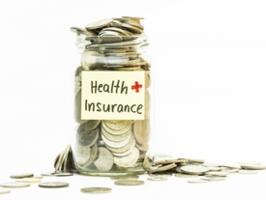Voters Say Health Care Good for Them, Bad in General
Voters still give the health care they receive high marks but are more critical of the U.S. health care system than ever.
A new Rasmussen Reports national telephone and online survey finds that just 29% of Likely U.S. Voters rate the U.S. health care system as good or excellent. This finding has been trending down from the low 40s in regular surveying since 2012. Little changed is the 31% who now rate the health care system as poor. (To see survey question wording, click here.)
But voters are much more generous when it comes to the health care they personally receive. Sixty-eight percent (68%) still rate that care as good or excellent, although that's down from an all-time high of 82% four years ago. Still, just eight percent (8%) rate the health care they receive as poor, consistent with findings since 2015.
Forty-two percent (42%) of Republicans rate the U.S. health care system as good or excellent, compared to only 26% of Democrats and 20% of voters not affiliated with either major party. GOP voters also give higher ratings to the health care they personally receive.
(Want a free daily e-mail update? If it's in the news, it's in our polls). Rasmussen Reports updates are also available on Twitter or Facebook.
The survey of 1,000 Likely Voters was conducted on February 1 and 4, 2018 by Rasmussen Reports. The margin of sampling error is +/- 3 percentage points with a 95% level of confidence. Field work for all Rasmussen Reports surveys is conducted by Pulse Opinion Research, LLC. See methodology.
Seventy-nine percent (79%) of Americans rate their own personal health as good or excellent, in line with years of surveying, but 32% have postponed a medical procedure or checkup in the last six months in order to save money. Twenty percent (20%) have not filled a recent prescription for the same reason.
Criticism of the overall U.S. health care system is high in virtually every demographic category.
Voters 65 and older give the highest marks to both the U.S. health care system in general and the health care they personally receive.
The more one earns, the more positively they rate their own health care.
Those who give positive marks to their personal health care have a far more positive opinion of the health care system in general.
The cost of care has consistently in surveys over the years been the number one concern for most voters. By a two-to-one margin, voters still believe more free market competition between insurance companies would do more to reduce health care costs than more government regulations. Voters have long opposed Obamacare's requirement that every American must have health insurance, and Congress repealed that mandate in the tax reform bill passed in December.
But 48% favor a single-payer health care system where the federal government provides coverage for everyone. That’s a new high.
As recently as last July, 74% of Americans said they had seen a doctor for a general physical exam in the last 12 months, and 46% of these adults said their doctor recommended lifestyle changes in the way they eat, drink or exercise. Eighty percent (80%) say they see a doctor on a regular basis.
Yet while 54% say their personal health is about the same as it was five years ago, 47% report that they are paying more for health care than they were.
Additional information from this survey and a full demographic breakdown are available to Platinum Members only.
Please sign up for the Rasmussen Reports daily e-mail update (it’s free) or follow us on Twitter or Facebook. Let us keep you up to date with the latest public opinion news.
The survey of 1,000 Likely Voters was conducted on February 1 and 4, 2018 by Rasmussen Reports. The margin of sampling error is +/- 3 percentage points with a 95% level of confidence. Field work for all Rasmussen Reports surveys is conducted by Pulse Opinion Research, LLC. See methodology.
Rasmussen Reports is a media company specializing in the collection, publication and distribution of public opinion information.
We conduct public opinion polls on a variety of topics to inform our audience on events in the news and other topics of interest. To ensure editorial control and independence, we pay for the polls ourselves and generate revenue through the sale of subscriptions, sponsorships, and advertising. Nightly polling on politics, business and lifestyle topics provides the content to update the Rasmussen Reports web site many times each day. If it's in the news, it's in our polls. Additionally, the data drives a daily update newsletter and various media outlets across the country.
Some information, including the Rasmussen Reports daily Presidential Tracking Poll and commentaries are available for free to the general public. Subscriptions are available for $4.95 a month or 34.95 a year that provide subscribers with exclusive access to more than 20 stories per week on upcoming elections, consumer confidence, and issues that affect us all. For those who are really into the numbers, Platinum Members can review demographic crosstabs and a full history of our data.
To learn more about our methodology, click here.





